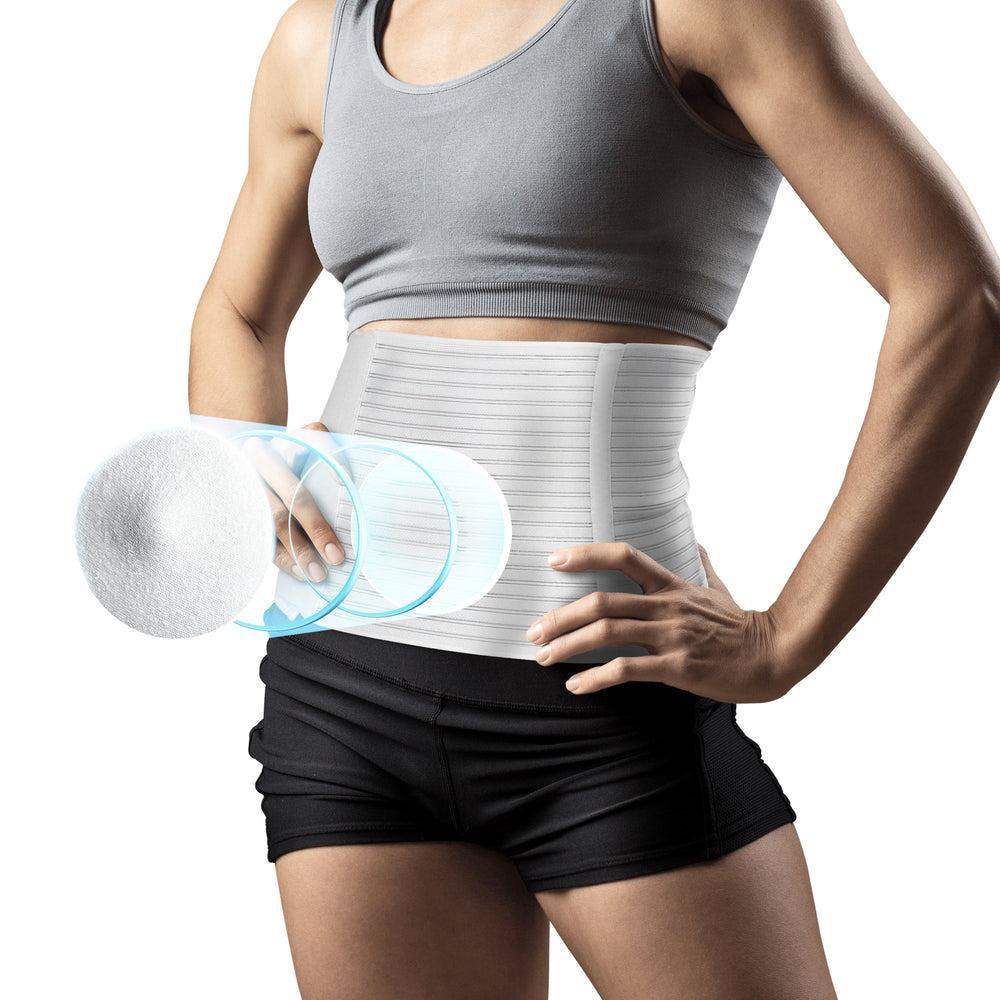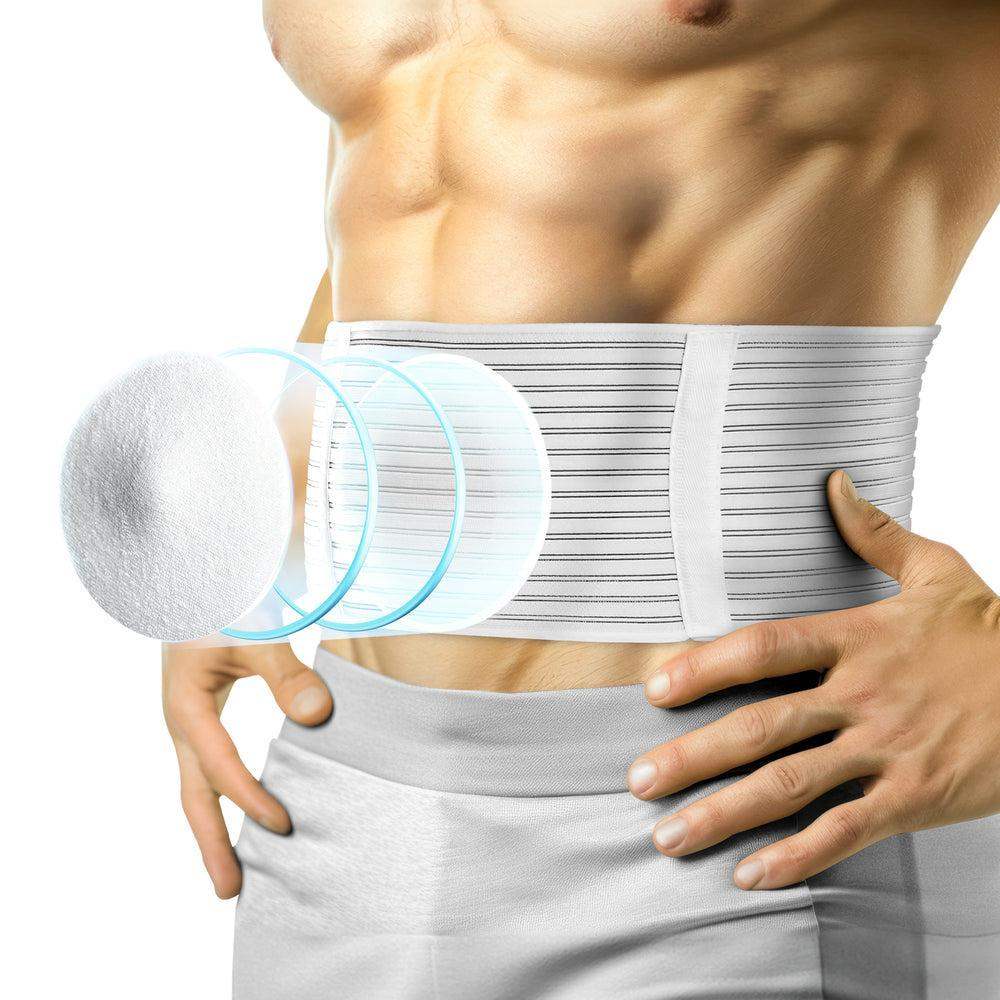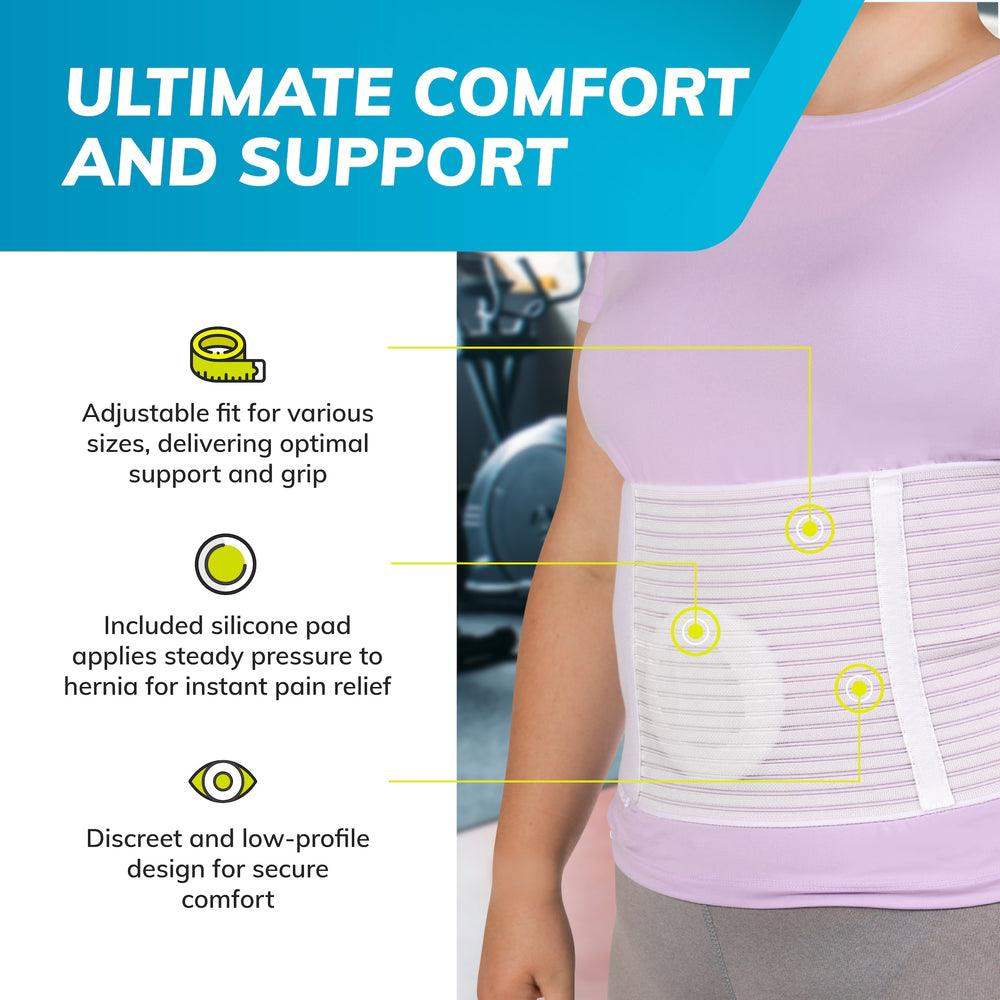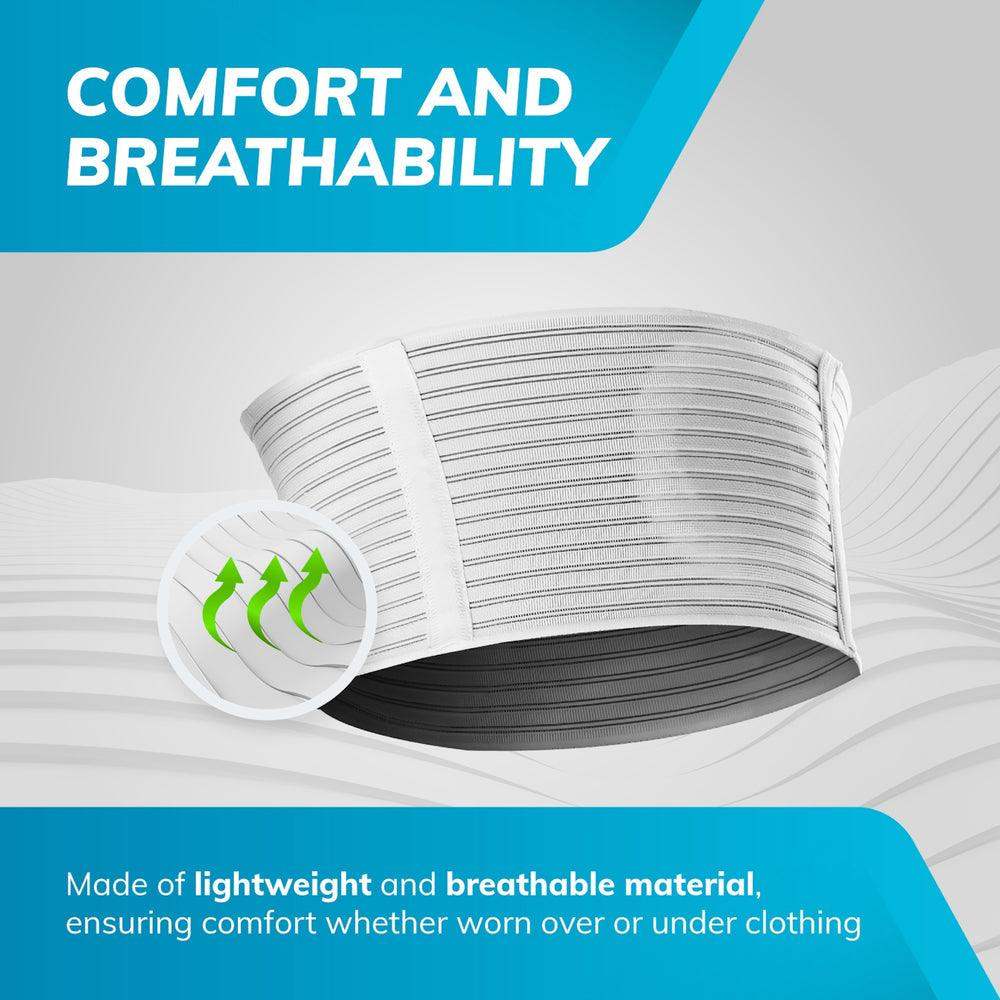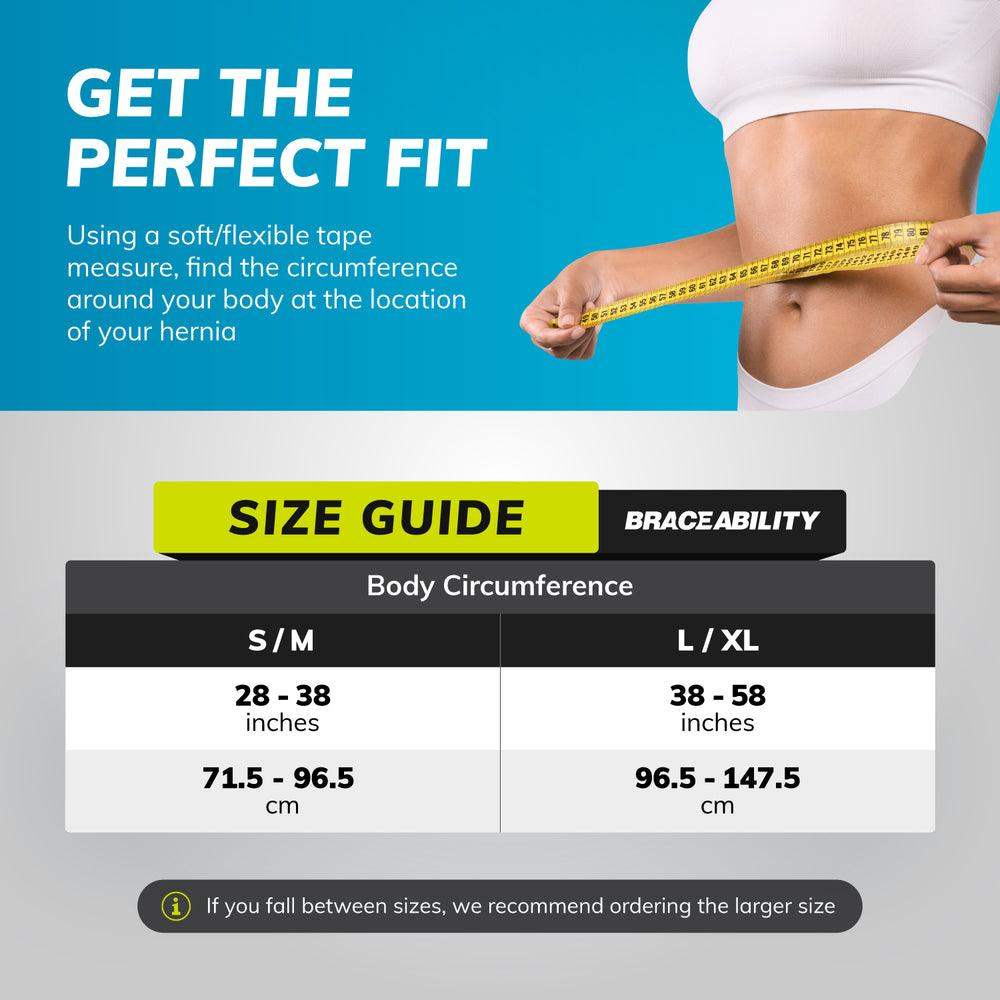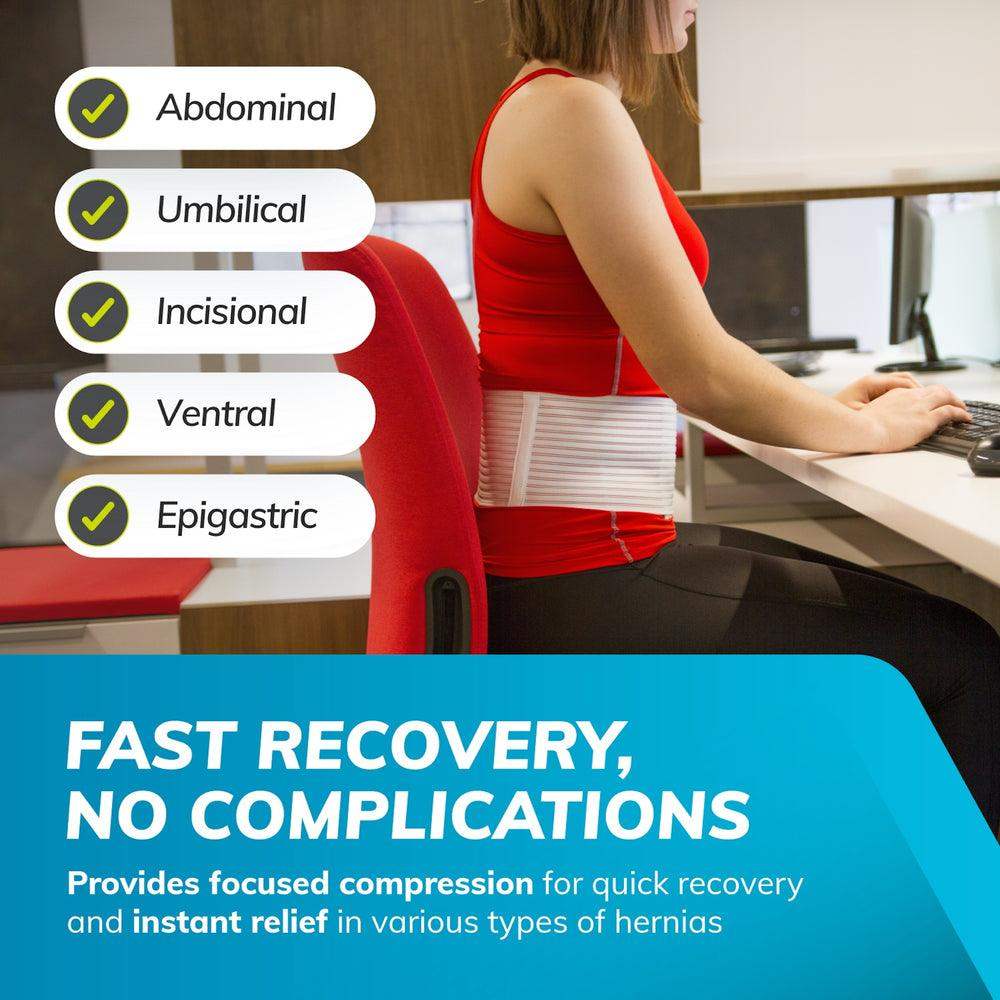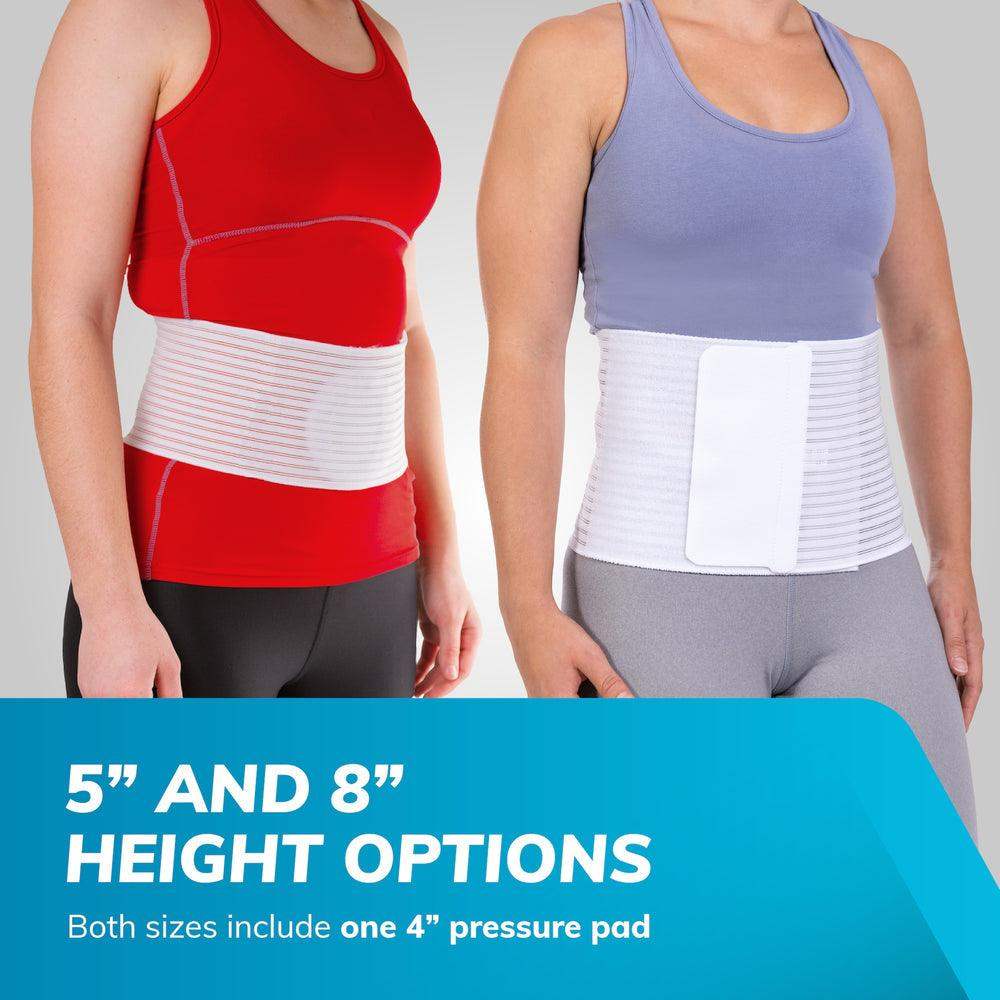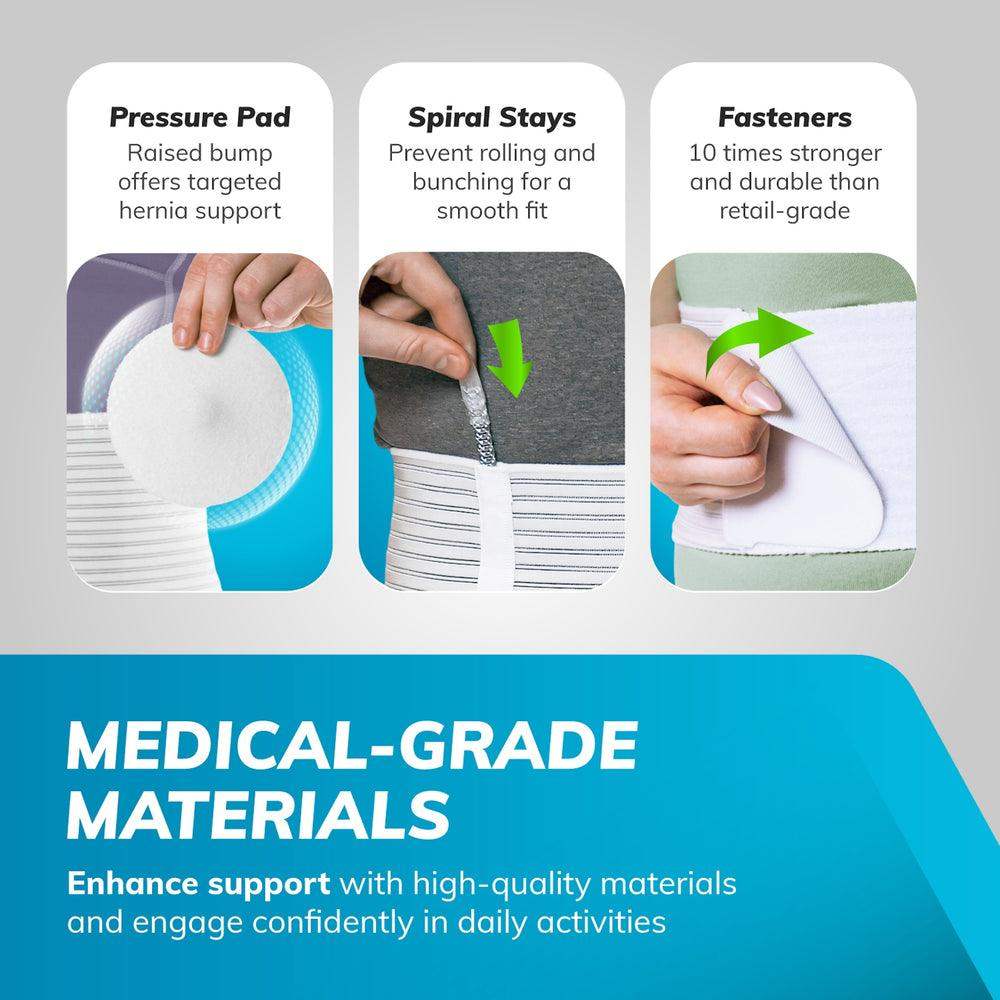Umbilical & Abdominal Hernia Support Belt with Pad
Umbilical & Abdominal Hernia Support Belt with Pad
Couldn't load pickup availability
What Are the Signs of a Hernia?
An internal bodily portion that bulges out of its normal structure is called a "hernia." They are brought on by the aging process weakening your bones, muscles, or tendons, or by putting too much weight or stress on a particular area of your body.
You've undoubtedly heard of a "herniated disc," which is an aberrant spinal nerve protrusion that emerges from the spine's channels.
However, stomach and abdominal hernias—where your intestines or other internal organs are pressing through the muscles in your belly to create a noticeable bulge or pouch—are treated with this hernia belt for men and women.
Due to their similar symptoms and etiology, abdominal hernias and abdominal muscle strains are frequently mistaken. To assist you diagnose your stomach pain, use this chart if you're not sure which condition you have.
Why Would I Require a Treatment Belt for Abdominal Hernias?
Regretfully, surgery is the only method that can fully treat and heal a spatula. However, if a hernia is tiny, you might be able to delay surgery or decide not to have it done at all.
Wearing this hernia support band will help ease your discomfort while you wait for surgery. This hernia belt's pad compresses the area directly above your hernia to hold it in place and prevent future protrusion.
In the event that you require surgery, the abdominal wall incision will be closed by sewing the protruding intestine back through it. Until you fully recover, you won't be able to engage in any physical activity, which puts your stomach at risk for muscle loss.
Wearing this belt with or without the pad will compress and support your abdominal wall, promoting healthy muscle healing. Hernia support belts shield the area where the incision was made and lessen the likelihood that the hernia would reoccur.
Why this is Men's and Women's Best Umbilical Hernia Binder
Disposable Hernia Pad
- The raised hump on this pad should be positioned just atop your bulge to help compress the hernia as much as possible. When you move, twist, or even cough, this soothes stomach pain.
- Your hernia is directly compressed by the pad's form, which helps to keep it contained and stops it from bulging out more.
- It is appropriate for wearing both before and after surgery.
- Constructed from silicone and plastic, with a thin layer of Lycra (85% polyester, 15% spandex) covering it, it is both comfortable and robust enough to support an abdominal hernia.
- Depending on where the hernia is, you can remove the pad and put it wherever along the belt using the fastening on the back of the pad.
- The washable and detachable cover is composed of 100% polyester terrycloth, which feels silky and pleasant against your skin.
- Our hernia brace is superior to a cheap one you may get at your neighborhood Walmart or CVS because of this unique pad. You can get an additional hernia pad here if the one in your hernia belt is growing old or worn out.
Simple and Rapid Utilization
Applying this hernia waistband belt for ladies is simple and quick! It just takes a few seconds to put this hernia garment around your waist; no assistance is needed. No bothersome buckles or clasps! If you have arthritis in your hands, the quick fastening is quite handy.
Breathable and Lightweight Material
All of the brace's components are latex-free, and the hernia binder is made of nylon and spandex. Depending on your preference, you can wear this small medical device covertly under your clothing or above them.
Rolling is prevented by removable, flexible spiral stays.
The brace won't roll down or bunch up while you're wearing it thanks to the stays on both sides of the belt. Splints can be taken out if necessary, but they do offer stability.
What Kinds of Hernias Are Differently Found in Men and Women?
Hernias can occur in a wide variety of ways. Certain types of abdominal hernias are considerably more common in women only. How unjust is that? The most typical ones are these:

- Hernias in the abdomen
- Hernias in the umbilicus (also known as belly button or navel hernias)
- Ventral hernias, another name for incisional hernias,
- Hernias in the Groin
- Hernias inguinales
- Ankle-brachial hernias
Hernias Obturator
Check out our compression groin wrap for groin hernias to support the area while you await surgery.
- Hernias in the Esophagus
- Hernias in the Hand
Only abdominal hernias, which you can learn more about below, are recommended uses for this belt:
Abdominal Hernia Types Treated by This Brace:
An umbilical hernia occurs when the intestine pulls through the muscle behind your belly button. It is also known as a nave hernia or a belly button hernia. Umbilical hernias can occur in adults as well, however they are more commonly observed in newborns.
Women frequently develop umbilical hernias for a variety of causes. An increased risk of umbilical hernias includes being overweight, having had multiple pregnancies or twins, having had stomach surgery in the past, and having a persistent cough.
A bulge in the middle of your stomach, pressure, and discomfort, particularly when coughing, are signs of an umbilical hernia.
Ventral or incisional hernias:
Your previous abdominal surgery is what caused these hernias. The muscles in your stomach or abdomen get weaker after abdominal procedures like a C-section or tummy tuck. After your surgery, hernias develop as a result of this weakening.
Am I More Prone To Umbilical Hernias If I'm Pregnant?
Pregnant mothers often get abdominal hernias because of the increased pressure on their stomachs. It is recommended that women who are diagnosed with an umbilical hernia during pregnancy postpone having surgery to repair the herniated navel. It is advisable to wait until you have fully recovered from childbirth before pursuing diastasis recti surgery.
While you wait for your child to be delivered, wearing a hernia belt during your pregnancy is a great way to help relieve your discomfort. It's simple to discover the perfect fit and even upgrade to a larger size as your child grows thanks to the broad selection of sizes. Alternatively, the range of sizes makes it simple for you to discover the ideal fit for your body if you're obese or plus-sized. The elastic band is offered in sizes ranging from 28" to 58".
We provide a large variety of additional maternity support belts, braces, binders, and wraps at Brace Ability to make you feel comfortable during your pregnancy!

Frequently Asked Questions Concerning Female Hernia Belts
What ailments is this hernia belt intended to treat?
Those with abdominal hernias, including umbilical, navel/belly button, incisional, and ventral hernias, can find comfort with the use of this truss belt. If you need to put off hernia surgery, this is an excellent alternative.
How can I decide which size to order?
Measure the circumference of your body at the site of your hernia using a cloth tape measure. The torso circumference range for this hernia corset is 28"–60".
How should the brace be put on?
Depending on where your hernia is, place the cushion inside the belt. After that, encircle your body with the hernia band and fasten it securely. As necessary, reposition the pad so that it presses against your hernia directly. You have the option to take out the two side supportive stays.
How should the hernia pad be adjusted?
You just take off the silicone pad that is fastened with closures and place it directly on top of your hernia area to change the position.
What is the belt's height?
Both 5" and 8" height options are offered for this abdomen wrap.
Which material is used to make this hernia brace?
Belt: 80 percent nylon, 20 percent spandex; pad: silicone covered with polyester. Lycra and Terrycloth fabric (85% polyester, 15% spandex) make up the soft, removable pad cover. Every part is devoid of latex.
Can the brace be cleaned?
Remove the hernia pad's soft fabric cover and spiral stays before washing. Hand wash the belt and the hernia pad's cloth cover in warm water with a small amount of soap. To let it air dry, lay flat. Avoid using high temperatures for drying or washing.
